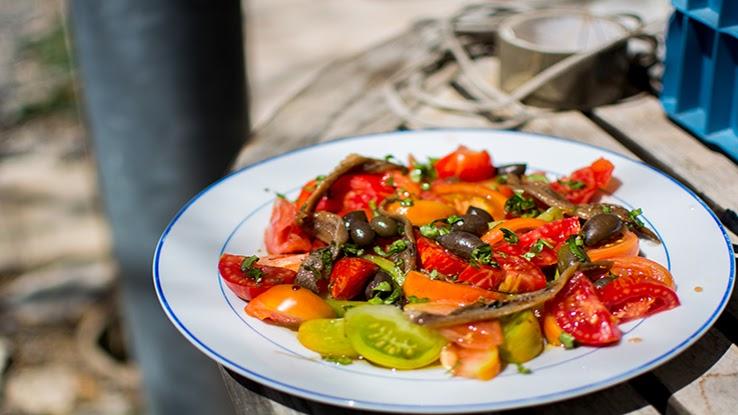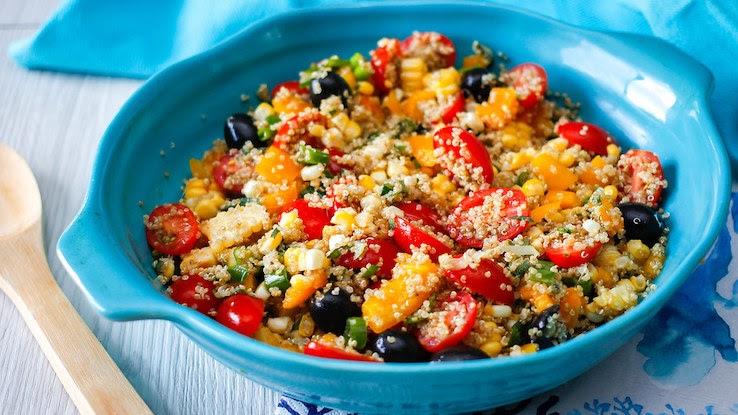Vegetarian Version of Military Diet

As you start looking into changing your eating habits, you'll see a lot about adding more colorful fruits and vegetables, along with healthy grains, to your diet. The benefits of doing so are numerous, and there's one diet in particular that aims to help you consume more of these healthful foods: the Mediterranean diet. This diet incorporates common foods from several regions, including Italy, Greece, Spain and Portugal.
Some studies suggest that following the Mediterranean diet can potentially lower the risk of diabetes, obesity, cancer and cardiovascular disease. Some of the diet's key ingredients include plenty of fresh fruits and vegetables, oily fish and unsaturated fats. You'll also have less meat and refined sugar. Learn more about this diet, including what else you'll eat, how it can help you and what alternatives exist.
The inspiration for the Mediterranean diet comes from the eating habits and available foods in the countries surrounding the Mediterranean Sea. With more than 16 countries on the list, each of which has its own culture, ethnic backgrounds, geography and agricultural resources, it's no wonder that the Mediterranean diet is varied. But, those regions also have a lot in common, which is why there are some boundaries in this way of eating.

The Mediterranean diet is primarily plant-based and encourages a daily intake of fruits, vegetables, whole grains, nuts, herbs, spices and healthier fats like olive oil. Even healthier animal proteins, particularly fish and shellfish, are consumed in smaller quantities. You'll eat fewer dairy products and red meats. This diet recommends consuming fish twice a week but only eating red meat a few times each month. You'll eat smaller portions of poultry, eggs and yogurt or cheese once every few days.
Is the Mediterranean Diet Healthy?
One defining feature of the Mediterranean diet is the consumption of healthy fats, including olive oil, along with nuts and seeds. According to the Mayo Clinic, olive oil contains monounsaturated fat, which can lower overall cholesterol and reduce "bad" cholesterol levels. While monounsaturated fat is considered healthier, you'll want to avoid eating saturated and trans fats as much as you can.

Another type of healthier fat is polyunsaturated fat, which includes omega-3 fatty acids. This type of fat is found in fish, such as salmon, herring, mackerel, sardines and albacore tuna. It can reduce triglycerides and potentially decrease the risk of stroke and heart failure.
Research has shown that following the Mediterranean diet can reduce the risk of cardiovascular disease and even overall mortality. According to the Harvard School of Public Health, a study of almost 26,000 women over 12 years found that participants who followed the Mediterranean diet had a 25% lower risk of developing cardiovascular disease.
What Other Diets Are Similar?
There are several healthy diets to consider, but few offer such long-term results with an emphasis on improving heart health and lowering the overall mortality risk as the Mediterranean diet does. The American Heart Association (AHA) recommends a healthy eating pattern characterized by plenty of fresh fruits, vegetables, legumes, beans and whole grains while limiting added sugars, highly processed foods, refined carbohydrates and saturated fats. Studies have shown that diets that follow this pattern, such as the Mediterranean diet, can lower the risk of heart disease and stroke while reducing other risk factors like diabetes, high blood pressure, high cholesterol and obesity.

One similar diet is called Dietary Approaches to Stop Hypertension (DASH). This diet also adheres to the AHA's healthy dietary recommendations. However, the DASH diet includes more meat and dairy products, while the Mediterranean diet emphasizes regularly incorporating olive oil into meals.
Regardless of which diet you choose, the AHA recommends opting for the leanest available cuts of meat along with fat-free and low-fat dairy products whenever possible. In terms of fats, monounsaturated and polyunsaturated are healthier than saturated and trans fats. The Mediterranean diet emphasizes water as the primary beverage of choice, with a glass of wine for women and up to two glasses for men each day.
MORE FROM SYMPTOMFIND.COM
Vegetarian Version of Military Diet
Source: https://www.symptomfind.com/health/mediterranean-diet-health-benefits?utm_content=params%3Ao%3D740013%26ad%3DdirN%26qo%3DserpIndex
0 Response to "Vegetarian Version of Military Diet"
Post a Comment